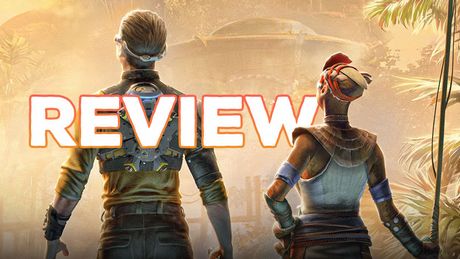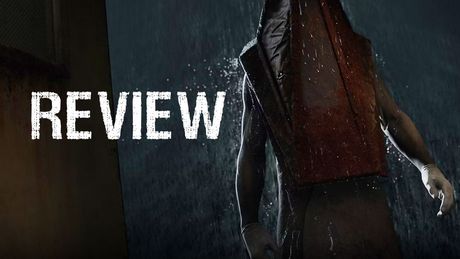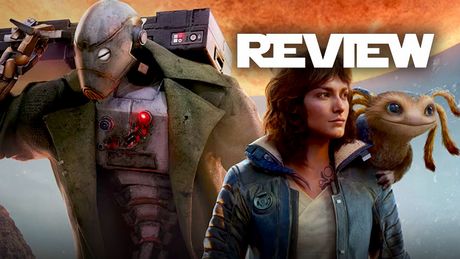Outcast: A New Beginning Review. A Questionable Comeback
The original Outcast seemed ahead of its time when it first came out back in 1999, but does this sequel make the same impact 25 years later? Find out why it may have missed the mark in our review.
If you played PC games back in 1999, the original Outcast must have blown your socks off. Not only did the game introduce you to one of the first open world games of its time, but it looked amazing considering what was around back then. Looking back at it now, the game looks rather rough in comparison to modern open-world titles so it makes sense Appeal Studios decided to revitalize the series to reach new audiences and give it the resources the original just didn’t have.
- The world of the Talan is unique, peculiar, and intriguing to learn about
- Jetpack travel is mostly fast and fun
- Adelpha is vibrant and there is plenty to get lost in
- Quests are cumbersome to track
- Enemies don’t pose much of a threat
- Movement and combat controls feel janky
- You’ve probably played this type of game before
The task of reviving an old series, however, is that it requires a certain type of finesse to balance old themes with new concepts while keeping ideas fresh and exciting. 25 years following the original, Outcast: A New Beginning falls short of being impressive simply because a lot of what it does not only has been done before but also done better elsewhere. What we get is a game that feels rather stale, and despite its title, feels anything but new.
Quest for Glory and Goofiness
This sequel to the original PC game once again follows protagonist Cutter Slade—yes, that’s his actual name—as the returns to the planet of Adelpha to help the Talan race from having their world invaded by humans. Humans are the enemy here, and Adelpha features so much foreign vegetation and alien life that it will instantly remind you of Avatar: Frontiers of Pandora. Even its themes and much of its story will sound familiar, though it won’t have the same level of gravity as the game doesn’t always take itself too seriously.
In fact, one of the two main objectives in actually saving the Talan from extinction is helping them prepare for their—wait for it—sex festival. This central objective will take you all over the regions in Adelpha to befriend each village you meet and to complete tasks to gain a literal and figurative token of their appreciation. Each village has its own kooky requirements so you may end up needing to escort a bee while getting constantly stung until you reach the inquisitive professor who asked you to bring it to him. Or, you may end up in a pen with alien-like horses to gather enough of their drool for a special drink that all the Talan like apparently. It’s bizarre, but remember—you are doing this to save an alien race from extinction!
The issue with these quests sometimes is that it’s also hard to keep track of them as they are all grouped by the village you are in. From the map screen can review what tasks you have to complete for each village to earn their token, but because some tasks require you to talk to certain people or get to a certain point in the story to activate them, sometimes you are left wondering where you should go next. Once you complete one of these branching quests, the game doesn’t automatically queue the next one so you need to back to this screen and manually select the next one to track. It’s a cumbersome experience considering a lot of the quests you’ll be doing feel the same in each village with just slight variations.
Of course, besides these weird fetch-like quests, the game also features other areas you can get lost in as you make your way from village to village. These side objectives can include clearing enemy robots from their bases or completing timed parkour trials in ancient ruins. On the plus side, the game rewards you for exploring in the form of points that you can use to upgrade either your jetpack or your combat abilities. Basically, the more exploration tasks and missions you complete, the more points you’ll get to make it easier to explore the world and the more enemies you kill the stronger your attacks will be.
Traveling Blues
Exploration is the best part of A New Beginning simply because flying around with a jetpack just feels fun regardless of where you are. You can upgrade it to allow you to perform more boost jumps, increase its energy cells to give you more bursts of speed, or upgrade it so that you can slowly descent while attacking foes from mid-air. Exploring the rich planet of Adelpha that is filled with verticality is a made easier with your jetpack and later glide suit, but there are plenty of times when movement feels janky. Going from gliding in the air to gliding over surfaces isn’t the smoothest transition, and even simply jumping higher to “climb” cliffs or platforms can get frustrating if you don’t land exactly on the correct surface. You don’t take damage from high falls, but you do lose valuable time if you are forced to make your way back up again.
Combat also leaves sometime to be desired as the enemies you will face, while menacing at first, will easily become pushovers and simply require some shooting, dodging, and more shooting to take down. Your weapons can be upgraded and you can install modules on them such as bombs that explode upon impact or bullets that heal you when an enemy is taken down, but battles just feel too straightforward for their own good that these modifications don’t make a difference in how easily you can take down enemies. And as much as I like melee attacks in shooters, Slade’s punch could use an upgrade as its responsiveness feels finicky making me often miss my targets by a few inches.
While there are things that work in its favor, Outcast: A New Beginning ultimately feels like any other open-world game you could play this year or have played years ago. It retains the charm of the original and further explores the world of the Talan in unique and odd ways, but how you go about doing that doesn’t feel as revolutionary as it did back in 1999.
You can find all our reviews on Metacritic and Opencritic.
While the original Outcast wowed everyone with how expansive and beautiful its world was, its sequel also retains that level of splendor but it isn’t something you haven’t seen before; let’s not forget that there are barren areas where you don’t really have anything to gawk at either. Again, other games have captured the essence of an alien planet better, but you do appreciate some of the uniqueness that Adelpha brings to the table especially when you consider the odd jobs you’ll doing and the peculiar culture the game introduces you to.
Final Thoughts
The original also had a certain charm to it that was further augmented by Slade’s dry wit. This time, Slade is a bit older so expect some cringe-inducing line delivery and the occasional dad joke here and there that some will appreciate but at times make the plot feel lackluster and unimportant. One noteworthy aspect of the game’s dialogue system, however, is that any alien word you hear pops up in a glossary you can quickly open during a conversation. There are lot of lines of dialogue to sometimes skip during a conversation, but at least this feature makes learning about Talan culture a more inviting and educational experience.
While there are things that work in its favor, Outcast: A New Beginning ultimately feels like any other open-world game you could play this year or have played years ago. It retains the charm of the original and further explores the world of the Talan in unique and odd ways, but how you go about doing that doesn’t feel as revolutionary as it did back in 1999. And if we were to consider it a new game altogether, there is a lot that it could improve on to make itself stand out from the crowd.







